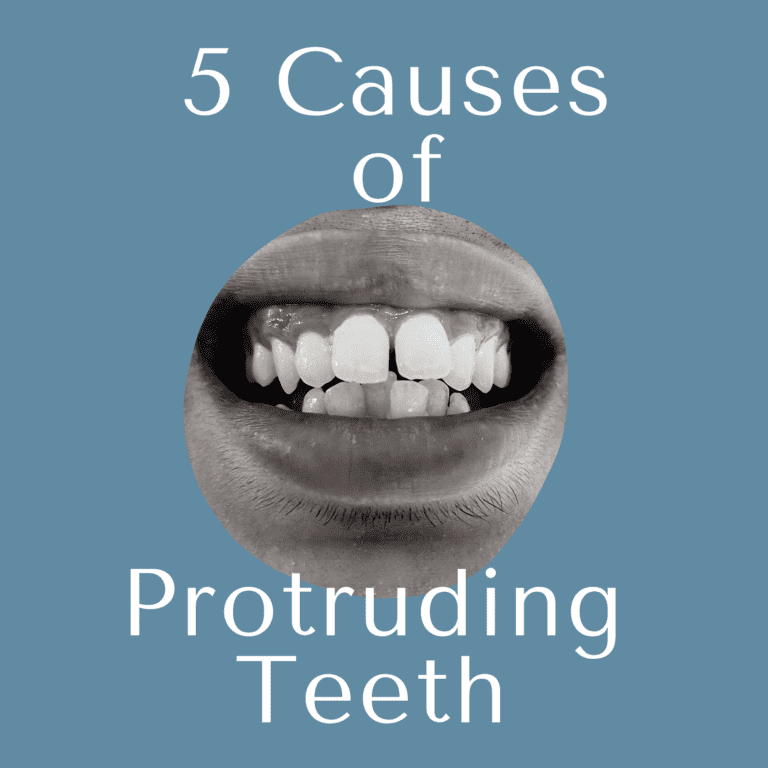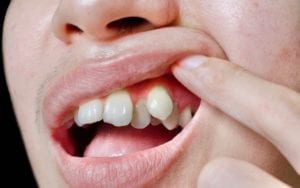5 Causes of Protruding Teeth

Did you know that children under the age of six with teeth that stick out more than 3 mm are three times more likely to suffer from dental trauma and children over the age of six with teeth that stick out more than 5 mm have double the chance of dental trauma? In fact, a study performed by the University of Adelaide in Australia confirmed a direct link between how much a child’s teeth stick out and the chances of dental trauma.
When a child’s teeth stick out, this is known as an overbite or buck teeth. Some cases of an overbite may only require treatment for cosmetic purposes, however more severe cases can require treatment to avoid complications such as accidental tongue biting and damage to the teeth and gums. An overbite can also cause speech impediments, breathing problems, pain or difficulty chewing, and alterations in facial appearance.
Overbites can be hereditary, but they can also be caused or exacerbated by certain childhood habits. Here are the six most common causes of overbites:
Genetics
Jaw shape is a hereditary feature, meaning that it is passed down from the parents into their offspring. Therefore, if the parents have an overbite it is likely that the child will develop an overbite as well. If the cause is genetic, then overbites will also generally be seen in the parents, siblings, or other close relatives.
Non-Nutritive Sucking Behaviors

A non-nutritive sucking behavior (NNSB) is a behavior characterized by a sucking motion that does not provide nutrition. This type of behavior is especially common in extremely young children and is usually performed as thumb-sucking or sucking on a pacifier.
Thumb-sucking is one of the childhood habits responsible for causing or exacerbating overbites when it continues past the age of 3 or 4. This is because permanent teeth start appearing at that age and the pressure of sucking and the finger cause the permanent teeth to later erupt at an abnormal angle. This same problem can occur when a child is constantly sucking on a pacifier. In fact, the Journal of the American Dental Association notes that pacifier use puts children at a higher risk of developing an overbite when compared to thumb-sucking.
Tongue Thrusting
When the tongue sits too far forward in the mouth and applies pressure to the backs of front teeth, this is known as tongue-thrust. It can be the result of poor swallowing habits, as well as swollen tonsils or adenoids. In some cases, it can also be brought on by stress. Not only does tongue-thrust increase the risk of developing an overbite, but it is also associated with causing an open bite.

Missing or Extra Teeth
The number of teeth is another possible cause of an overbite. Missing teeth can cause the surrounding teeth to shift from their normal position. Having too many teeth for the size of your mouth is known as crowding and it can also affect the position of your teeth. In fact, crowding can cause some teeth to be pushed forward.
Tumors or Cysts
Although this is not as common of a cause for protruding teeth, tumors and cysts in the mouth or jaw can alter the jaw’s shape and teeth’s position. In cases where a growth occurs in the upper jaw, this can cause the upper teeth to move forward so that they protrude from the mouth.






Recent Comments